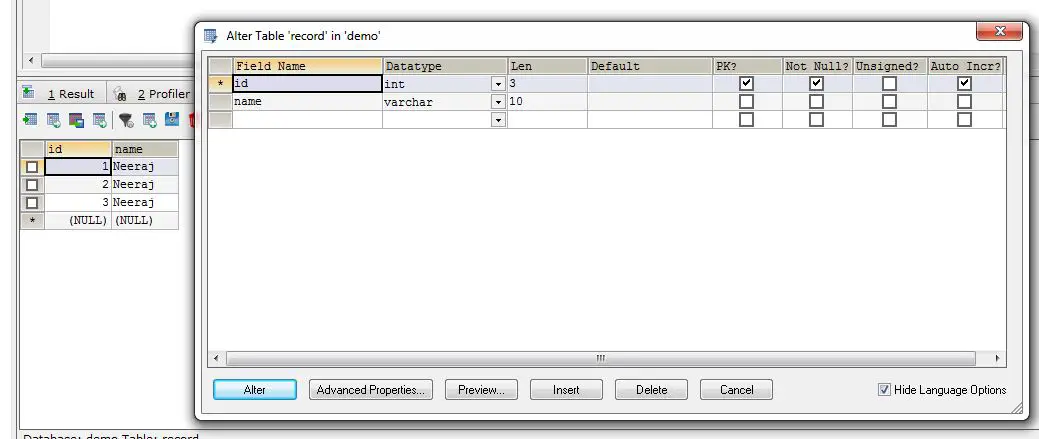6.4 Retrieving AUTO_INCREMENT Column Values through JDBC
Before version 3.0 of the JDBC API, there was no standard way of retrieving key values from databases that supported auto increment or identity columns. With older JDBC drivers for MySQL, you could always use a MySQL-specific method on the Statement interface, or issue the query SELECT LAST_INSERT_ID() after issuing an INSERT to a table that had an AUTO_INCREMENT key. Using the MySQL-specific method call isn't portable, and issuing a SELECT to get the AUTO_INCREMENT key's value requires another round-trip to the database, which isn't as efficient as possible. The following code snippets demonstrate the three different ways to retrieve AUTO_INCREMENT values. First, we demonstrate the use of the new JDBC 3.0 method getGeneratedKeys() which is now the preferred method to use if you need to retrieve AUTO_INCREMENT keys and have access to JDBC 3.0. The second example shows how you can retrieve the same value using a standard SELECT LAST_INSERT_ID() query. The final example shows how updatable result sets can retrieve the AUTO_INCREMENT value when using the insertRow() method.
PreparedStatement with Statement.RETURNGENERATEDKEYS. Generated keys not requested (MySQL) 3. Unable to obtain SQL execution plan in Java for Prepared-.
Example 6.8 Connector/J: Retrieving AUTO_INCREMENT column values using Statement.getGeneratedKeys()
Example 6.9 Connector/J: Retrieving AUTO_INCREMENT column values using SELECT LAST_INSERT_ID()

Java Get Generated Keys Prepared Statement Mysql File
Example 6.10 Connector/J: Retrieving AUTO_INCREMENT column values in Updatable ResultSets
Mysql Prepared Statement Parameters
Running the preceding example code should produce the following output:
At times, it can be tricky to use the SELECT LAST_INSERT_ID() query, as that function's value is scoped to a connection. So, if some other query happens on the same connection, the value is overwritten. On the other hand, the getGeneratedKeys() method is scoped by the Statement instance, so it can be used even if other queries happen on the same connection, but not on the same Statement instance.